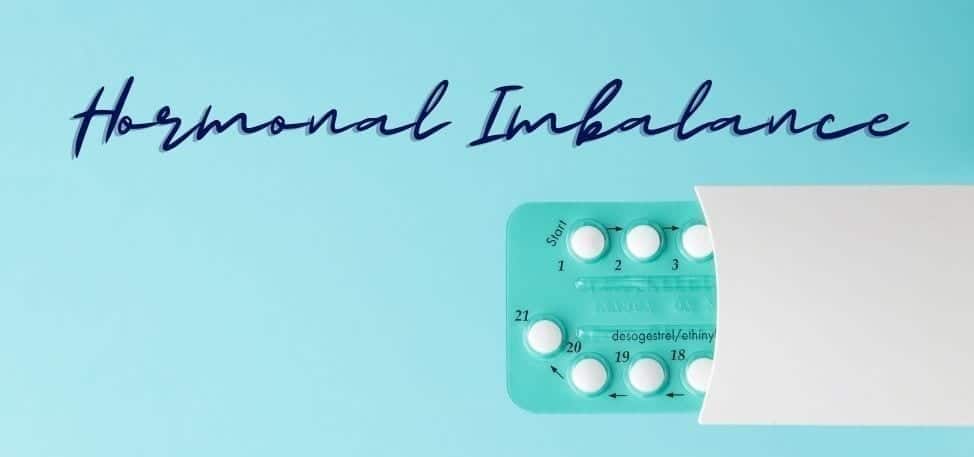Home > Hormones > Hormone issues & symptoms > How do high levels of progesterone impact our hunger?


Sweets. Takeaways. Cakes, ice cream, crisps, bubbles… What are we talking about? Well, aside from being a kickass shopping list, this is the sort of thing high levels of Progesterone can make you increased appetite before period. Yup, turns out it really is your period that’s forcing you to open that second carton of Dulce de Leche…
As you may already know, Progesterone is a female sex hormone produced in your ovaries. Levels generally reach their peak during the luteal phase of your menstrual cycle, when ovulation occurs.
And that’s because Progesterone is responsible for making sure your uterus is ready should an egg get fertilized. If it doesn’t, the levels drop, kick-starting the shedding of your uterus lining and, in turn, your period.
As part of your menstrual cycle, higher Progesterone levels can cause symptoms associated with PMS.
These include:
High Progesterone can also make you feel more hungry, more often.
Have you ever noticed your need for all things chocolate in the run-up to your period? Does the thought of an empty fridge cause Elton John-level histrionics? Chances are, high levels of progesterone are to blame.
Progesterone and Estrogen are in charge of both the follicular and luteal phases of your menstrual cycle. When Estrogen is in control, you’ll be less hungry. But these levels drop during the luteal phase, and high levels of progesterone take over. That increases your hunger and causes you to feel less full after that giant bar of chocolate.
High levels of progesterone can also stimulate another hormone. Grehlin, also known as the “hunger hormone,” which is produced in your stomach. And guess what? It also makes you eat more.
Simple – everything! High levels of progesterone seem to increase hunger in general. However, lots of us find ourselves drawn to carb-heavy, salty, or sugary foods. And here’s why: sweet and starchy food causes your body to release mood-boosting serotonin. While these cravings are common, it’s helpful to focus on foods to increase progesterone—such as leafy greens, nuts, seeds, avocados, and fatty fish—which not only support hormone balance but can also help stabilize mood and energy during this time.
And there’s no such thing as too much Serotonin during your period, you know? Whatever you’re craving, from chocolate to chips and everything in between, do us a favor. Don’t feel guilty about giving into the cravings. Remember, it’s just your hormones!
Now, where’s that spoon…
Disclaimer: This website does not provide medical advice. The information, including but not limited to, text, graphics, images and other material contained on this website are for informational purposes only. No material on this site is intended to be a substitute for professional medical advice, diagnosis, or treatment. Always seek the advice of your physician or other qualified healthcare provider with any questions you may have regarding a medical condition or treatment and before undertaking a new health care regimen, and never disregard professional medical advice or delay in seeking it because of something you have read on this website.

-


Dr Singh is the Medical Director of the Indiana Sleep Center. His research and clinical practice focuses on the myriad of sleep.

What are PMS and PMDD? Whether you’ve just started your period or have had it for years, you’ve probably experienced some physical symptoms and mood changes before it began. While you may have heard of PMS, most likely not in

Your period: The lowdown When it comes to menstruation, there aren’t different period stages, because your period is actually a part of the follicular phase. If you’re confused, don’t worry; we’ll explain more. For many women, the wording is where

What is hormonal imbalance? It is a simple way to say that your hormone levels are significantly higher or lower than what is expected for your age and the time of testing. Keep in mind that it is not a
Hormona© 2025, All Rights Reserved
Privacy Overview
| Cookie | Duration | Description |
|---|---|---|
| cookielawinfo-checkbox-analytics | 11 months | This cookie is set by GDPR Cookie Consent plugin. The cookie is used to store the user consent for the cookies in the category "Analytics". |
| cookielawinfo-checkbox-functional | 11 months | The cookie is set by GDPR cookie consent to record the user consent for the cookies in the category "Functional". |
| cookielawinfo-checkbox-necessary | 11 months | This cookie is set by GDPR Cookie Consent plugin. The cookies is used to store the user consent for the cookies in the category "Necessary". |
| cookielawinfo-checkbox-others | 11 months | This cookie is set by GDPR Cookie Consent plugin. The cookie is used to store the user consent for the cookies in the category "Other. |
| cookielawinfo-checkbox-performance | 11 months | This cookie is set by GDPR Cookie Consent plugin. The cookie is used to store the user consent for the cookies in the category "Performance". |
| viewed_cookie_policy | 11 months | The cookie is set by the GDPR Cookie Consent plugin and is used to store whether or not user has consented to the use of cookies. It does not store any personal data. |
